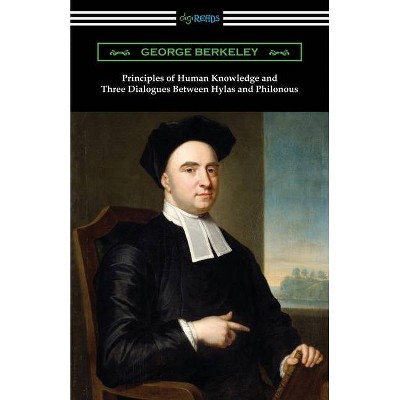Principles of Human Knowledge - (Mint Editions) by George Berkeley (Paperback)

Similar Products
Products of same category from the store
AllProduct info
<p/><br></br><p><b> Book Synopsis </b></p></br></br><p><b>An exploration and defense of immaterialism, <i>Principles of Human Knowledge</i>, details George Berkley's views on reality and perception.</b> The book offers insight into the theory posited by one of the world's greatest philosophers.</p> <p> <i>Principles of Human Knowledge</i>, is a criticism of English philosopher John Locke and his beliefs surrounding conceptualism and realism. Berkley's theory of immaterialism is in direct opposition, stating that material objects are rooted in perceived ideas. There is an area of non-reality that cannot be touched or captured. </p> <p>A critical exploration of opposing views, <i>Principles of Human Knowledge <i> is a foundational text that still applies in modern philosophy. It examines the realist argument in relation to both the secular and spiritual realm.</p> <p>With an eye-catching new cover, and professionally typeset manuscript, this edition of </i> Principles of Human Knowledge </i> is both modern and readable.</p><p/><br></br><p><b> From the Back Cover </b></p></br></br><p><i> Principles of Human Knowledge<i> is one of George Berkley's most famous works. The philosopher uses the text to explore realism, idealism and metaphysics as well as immaterialism. Initially, his interpretation was poorly received. But years later, Berkley's writings would be revered as an essential philosophical work. </p>
Price History
Price Archive shows prices from various stores, lets you see history and find the cheapest. There is no actual sale on the website. For all support, inquiry and suggestion messages communication@pricearchive.us




















